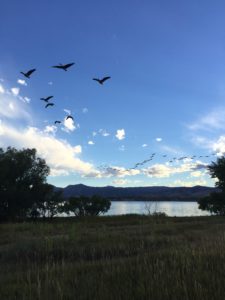 Our culture fails to teach us the essential skills we need to navigate through life successfully in so many ways. As I discuss often on this site, it fails to teach us about healthy, real love. It fails to teach us about how to feel our feelings and work with our thoughts. It fails to guide us through the potholes and landmines of transitions. And it fails to teach us how to make decisions, both big and small.
Our culture fails to teach us the essential skills we need to navigate through life successfully in so many ways. As I discuss often on this site, it fails to teach us about healthy, real love. It fails to teach us about how to feel our feelings and work with our thoughts. It fails to guide us through the potholes and landmines of transitions. And it fails to teach us how to make decisions, both big and small.
Not only does the culture fail to offer useful decision-making skills but it suggests techniques that often truncate and sabotage the process. A prime example of this is the pros and cons list, which is the main tool the culture offers for trying to make a major life decision. On the surface there’s nothing inherently wrong with making such a list, but when we look deeper we see that it’s a way to try to make a decision from our heads. There are no answers in our heads. Our heads can help us solve math equations and memorize history facts but this realm of Self is largely unhelpful when it comes to connecting to wisdom, guidance, and clarity, which are the resources we need when making significant decisions. When we become caught up in making these lists the only predictable outcome is that we become caught in our heads.
The second decision-making tool the culture offers is, “Trust your gut and listen to your heart.” Again, this is unsound advice as feelings are fleeting and, as such, unreliable guideposts from which to make decisions. The culture especially espouses this line of thinking when it comes to our intimate relationships. Phrases like, “You should just know,” or “Doubt means don’t” speak to the premium that the mainstream places on the ephemeral emotional realm. The more people hear these phrases the more they spout them off to others, which is why if you dare to express that you’re struggling in your loving, devoted relationship you’ll likely hear one of these platitudes. We are a very young and very ignorant culture when it comes to understanding the vicissitudes of thoughts and feelings.
So if we don’t make decisions from our heads or from our feelings, how do we make them? We make them from our wisdom-body, the current or pool that runs beneath our thoughts and between our feelings. In essence, we make them from our Well of Self. We make them from a place of knowing, which isn’t quite intuition and isn’t quite thought. We make them from the place inside that trusts ourselves and knows ourselves, the place that doesn’t equate outcomes with self-worth, which means that we’re willing to take risks and make a mistake. When the perfectionist is at the helm of our inner ship we become paralyzed. When we believe that one particular outcome will define our worth – deeming us either worthy or unworthy – we stop dead in our tracks. When we’re trying to seek fulfillment from the outside-in and believe that making a “right” or “wrong” decision will create that fulfillment, we’re placing our flowers of devotion on the wrong altar. On the other hand, when we fill the waters of our inner well, everything changes, including how we make decisions.
But because so few people learn how to live their lives from their body they have no idea how to drop out of their heads and access this place of wisdom. That’s what I teach in Trust Yourself: A 30-day program to help you overcome your fear of failure, caring what others think, perfectionism, difficulty making decisions, and self-doubt. Through shining a gentle yet bright light on the ways in which your self-trust was damaged, the course guides you through the information, skills, and tools necessary to reclaim what is rightfully yours. Without self-trust, decision making becomes fraught with anxiety. Without self-trust, we don’t know where to turn when life presents multiple options, as it always does. Without self-trust, we fear making a mistake and our inner perfectionist ends up running the show. Without self-trust, the fun and creativity is sucked out and life becomes very challenging.
I recently received a beautiful email from a past Trust Yourself participant who was writing to express her gratitude for this course and the work she’s done with her therapist. She shared:
Thousands of people have learned to connect more deeply with their well of Self by following the principles I teach in the course. Once integrated, they then have a roadmap that allows them to make decisions more easily, and a process that was previously fraught with anxiety and despair becomes a creative and even joyful experience. Can you imagine that making decisions could be joyful and creative? It’s possible! If you’d like to learn how, please join me for this eleventh round, which will start on April 28, 2018. You can sign up and learn more here.





